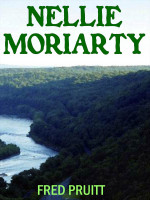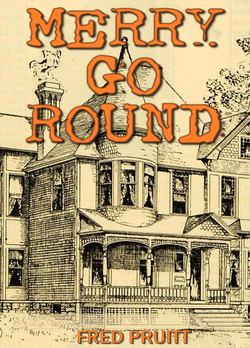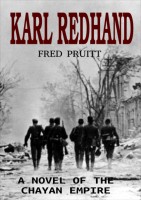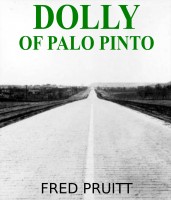Direct Translation via Google Translate. Edited.
by Oleg Shevchenko
[REGNUM] On July 17, 1945, the most heavily guarded train in Europe arrived in the Berlin suburb of Potsdam. The armored train, which had traveled 1,923 kilometers through the USSR, liberated Eastern Europe, and defeated Germany, brought a Soviet delegation headed by Marshal Joseph Stalin (he would receive the title of Generalissimo a few days later, on the 27th). The third and final meeting of the Soviet leader with the still allied leaders of the United States and Britain was staged as a real military operation with an amazingly complex plan of execution.

The operation to prepare and ensure communication between Stalin, Harry Truman and Winston Churchill "on home turf" (Potsdam was in the Soviet occupation zone) was codenamed "Palm". The speed and precision of its execution was intended to impress the partners.
The fundamental agreement on the meeting, which was to consolidate and develop the results of Tehran and Yalta, was reached at eight o'clock in the evening on May 28 following a conversation between Stalin and Harry Hopkins, the special envoy of the US president. Just 45 minutes later, two people responsible for organizing the Palma were summoned to the "master's" office: Stalin's head of security Nikolai Vlasik and deputy head of the NKVD Sergei Kruglov. No more than five minutes were allocated for the briefing, which was attended by Lavrenty Beria. The following morning, Vlasik and Kruglov organized an on-site inspection in Potsdam.
"PALM" OF SPECIAL SIGNIFICANCE
Potsdam was a symbolic place. It was here in 1933 that Adolf Hitler was confirmed as Chancellor at a meeting of the Reichstag (the parliament moved to the suburbs after a fire). It was here, at the garrison church, that the "historic handshake" between the NSDAP Fuhrer and Reich President Paul von Hindenburg took place. "Potsdam Day" played a major role in Goebbels' propaganda. In short, there could not have been a better place for the meeting of the victors of Nazism.
In addition, air raids and shelling barely affected the elite district of Potsdam - Babelsberg, the former home of artistic bohemia and high-ranking Nazi functionaries (by the way, according to the plot of "Seventeen Moments of Spring", it was in Babelsberg that Standartenführer Stirlitz rented a cottage). True, the streets and courtyards of Babelsberg were mined - and our sappers were the first to begin work here.
The Moscow "inspectors" found three well-preserved villas near Lake Griebnitzsee to accommodate Stalin, Truman and Churchill. A place for the conference was quickly found - the only suitable building was recognized as the Cecilienhof Palace, perhaps the last architectural masterpiece of the Kaiser's Germany. The palace was built by 1917 on the orders of Wilhelm II for the Crown Prince (who could have become Wilhelm III ) and Princess Cecilie.
In exactly one month, 37 of the 176 halls and offices in Cecilienhof were quickly (but thoroughly) repaired, and about six dozen houses for delegations, with all the necessary communications, were prepared, in addition to three personal villas. Needless to say, almost all of the premises in Cecilienhof (except Stalin's office) - ours and those of the allies - were equipped with eavesdropping equipment.
On July 2, Beria reported to Stalin on Potsdam’s readiness to receive guests.
A separate part of the operation was organizing the Moscow-Potsdam trip. Stalin preferred railways to air travel: both considering his advanced age and for safety reasons.
The domestic railway gauge is wider than the European one, both then and now. Regular trains make a technical stop for "changing shoes", but in this case, stops were excluded. The decision was made: to change over 800 kilometers of the European track to the USSR standard.
Along the tracks, in populated areas, at stations and near bridges, the situation was monitored by more than 1,500 NKVD operatives dressed in civilian clothes. Another 17,000 employees checked and patrolled the tracks.
It was decided to deploy NKVD troops according to the following formula: on the territory of the USSR - 6 fighters for every kilometer of road, in Poland - 10 officers, and in Germany - 15 fighters.
Ahead and in the rear of the special train movement at stations, on side and parallel tracks along the most difficult routes, eight fully equipped army armored trains, armed with artillery and machine guns, moved.
Stalin's train itself was guarded by 90 officers. But that's not all. Directly within sight of Stalin's train was a train with 40 guards. And right behind the last car of the special train was a train with another 90 NKVD officers.
The delegation took with them a supply of food and drinks for the top officials in order to minimize the possibility of poisoning.
Stalin was expected to be seen a day earlier, getting off the plane. But he arrived later than the announced date and by train. And his arrival itself was devoid of any fanfare. The leader demanded from Marshal Georgy Zhukov (at that time, the commander-in-chief of the Group of Soviet Occupation Forces in Germany) that there be no orchestra, honor guards, or other tinsel.
It was enough that the allies were convinced that the USSR controlled not only its own territory, but also the area from Brest to Berlin, and further west, to the border of the Soviet zone.
"TSAR ALEXANDER REACHED PARIS"
At the station, Stalin was met by diplomatic and military representatives of the allies. The Soviet leader's translator Valentin Berezhkov recalled: the US ambassador to the USSR William Averell Harriman asked Joseph Vissarionovich whether he was pleased to be the winner in Berlin. To which he received an answer that was analyzed at length in Washington and London: "Tsar Alexander reached Paris..."
The delegation then boarded the cars and took the leader to the residence chosen for him – a two-story villa of fur trader Paul Gerpich. The mansion with an open veranda and an attic contained 15 rooms with a total area of 400 square meters. The adjacent territory was a large green park. Nearby were two runways. The villa was equipped with long-range radio communications. A separate NKVD regiment provided security.
Operation Palma is complete.
SWORN ALLIES
The Potsdam Conference was planned as the final diplomatic event that would cement the alliance between the USSR and Western democracies, which still had to finish off Hitler's last ally, the Japanese Empire.
But it was in Potsdam that it became clear that the situation was changing.
A visible symbol of this was the change of the main characters. Instead of the "aristocrat" Franklin Roosevelt, who died in April 1945, the American delegation was headed by the son of a farmer with an unfinished university education, Harry Truman. And the British even had a "substitution on the field" right during the negotiations: Churchill was replaced by the leader of the Labour Party, who won the elections, Clement Attlee.
It is ironic that the democratic socialist Attlee became the first "Cold War Prime Minister". Truman, having barely settled into the White House, set a course for toughening relations with Moscow - this became obvious already in April-May 1945, at the conference in San Francisco to establish the United Nations. The new US president tried to replay the main result of the meetings in Dumbarton Oaks and Yalta - the principle of unanimity of countries in the UN Security Council and the veto power of each member of the Security Council. At the same time, Truman accused the Soviet Union of not observing the Yalta decisions on Poland.
But formally the three great powers remained allies, jointly determining the fate of the post-war world. The issue of defeating Japan and liberating China and Korea was unclear. The future of the USSR, whose economy, as the allies believed, was undermined by the war, raised big questions. London and Washington decided to play on all this.
"WEAPONS OF TERRIBLE POWER"
In total, there were nine meetings, which were remembered for the intense intensity of the debates, numerous mutual “barbs”, sometimes on the edge of what is acceptable in diplomatic circles.
Thus, during one of the discussions, Stalin asked why the American delegation was rejecting the Yalta decisions and showed the protocol of the negotiations signed by President Roosevelt. Truman, smiling, replied that this was not an official agreement, but only a protocol of the conversation. And therefore, the current US president is not obliged to fulfill the oral promises of his predecessor, not secured by legal procedures.
But arguments that might have worked in the Jackson County, Kansas, court (where Truman had made his career as a lawyer) did not work at the level of the Big Three leaders, where a word in a private conversation is sometimes more important than official papers. According to professional diplomats, the 33rd US president clearly "fell short of Roosevelt's standard."
A little later, Truman informed Stalin that the Allies had acquired “weapons of terrible destructive power.” He was referring to the Trinity test, the first nuclear bomb dropped on July 16, 1945, at the Alamogordo Proving Ground in New Mexico, two weeks before the first real tests of the new weapon in Hiroshima and Nagasaki.
In response to Truman's words, Stalin merely nodded. At first, witnesses to the conversation decided that the Soviet leader simply did not understand what was being discussed. Neither Truman nor Churchill returned to the topic of new weapons. In the USSR, we recall, the development of "product 501", also known as the RDS-1 bomb, was in full swing. Beria regularly reported to Stalin on the status of the project.
And according to Zhukov, on the same day Stalin "told Molotov about the conversation he had with the US President. Molotov immediately said: "They are raising their price." Stalin laughed: "Let them raising it. We will have to talk to Kurchatov about speeding up our work."
And the next day, Truman gave a secret order to prepare to drop nuclear bombs on Japanese cities. The nuclear era had begun.
WAR OF THE JAPANESE SUCCESSION
The discussion of the Japanese question was also accompanied by omissions on both our and the Western sides.
Earlier, in February 1945, Roosevelt proposed to Stalin to begin an operation against Japan, with which the USSR was neutral at that time (according to the treaty of April 1941), three months after the defeat of Germany was completed. The Americans were afraid of major losses in an attempt to occupy the Japanese islands with their own and British armies. In addition, dozens of combat-ready Japanese divisions remained in China.
Therefore, on the one hand, the US expected to quickly resolve the "Japanese question" with the help of the Soviet Union. On the other hand, with the advent of nuclear weapons, the Americans expected to push their Soviet allies away from participation in Far Eastern affairs. Roosevelt also planned to enlist the help of Chiang Kai-shek and, in exchange for support in the war with the communists, to place American military bases in China. The Americans bet on creating a controlled regime in Korea, which predetermined the split of the country into North and South and the war of 1950-53.
In the summer of 1945, Japan, which had not yet been defeated, made colossal efforts to prevent Stalin from taking the side of the USA and Britain. The Japanese even suggested that Moscow indicate its wishes for territorial concessions. Emperor Hirohito was convinced that only the entry of the Red Army into the war would be a critical blow to the empire.
In Potsdam, the Soviet delegation demonstrated its determination to put an end to Japanese militarism together with its allies. But in reality, Moscow acted based on its own interests. The USSR did not sign the collective ultimatum addressed to Japan (our country waited for the Japanese to officially refuse and only then joined the document). But the main thing is that the USSR did not limit itself to the defeat of the Kwantung Army in the campaign of August-September 1945. Soviet troops, having entered Korea, contributed to the establishment of a friendly regime in Pyongyang. The USSR provided assistance to Mao Zedong's communists in the war with Chiang Kai-shek.
In the end, the United States failed to use our help to reformat East Asia from Korea to Indochina at its own discretion. The logic of the Cold War (in which both sides had nuclear weapons since 1949) determined a completely different balance of power.
Our country was able to support with military (including nuclear) arguments those positions that were achieved in Potsdam by political and diplomatic methods.
RESHUFFLING THE POLITICAL CARDS
Following a 17-day marathon of continuous meetings, discussions and negotiations, Stalin, having weak “cards” in his hands – the demobilization of the army, the absence of nuclear weapons, an economic recession, the threat of famine – managed to achieve the maximum possible through diplomatic methods.
Thus, at the insistence of the USSR, it was decided to completely denazify and demilitarize Germany. Individual units of the German army and political structures preserved by the Allies were dissolved (the British were inclined to preserve the remnants of the Hitlerite military apparatus, the Americans were not so interested in this).
Stalin and his diplomats managed to push through the issue of compensation for the Soviet Union's losses. Our claims against Germany were satisfied by withdrawals from the Soviet occupation zone and from Germany's corresponding investments abroad - in Bulgaria, Hungary, Romania, Finland and Eastern Austria (where our occupation zone was also formed).
In addition, the USSR received 15% of the confiscated industrial capital equipment from the Western zones in Germany. The agreement with the Allies was as follows: part of this equipment was transferred to us free of charge, part in exchange for an equivalent value in food, coal and other products from the Soviet zone.
The Allies also had to accept lists of valuables handed over by the Soviet side, which the Anglo-Americans had managed to take out of East Germany before the establishment of Soviet control there.
The USSR achieved the transfer of 50% of the military and merchant fleet to Germany; another 50% was given to Great Britain; the USA refused to divide the fleet.
The issue of restoring Austria as a state outside the blocs and the more sensitive issue of post-war Polish borders were resolved amicably.
The Allies recognized Soviet sovereignty over the former "eastern outskirts" of Poland (Western Ukraine and Western Belarus), established in 1939. At the same time, the country expanded at the expense of former German Silesia, Pomerania and two-thirds of East Prussia - one-third of this territory, including Königsberg, went to the USSR, which was also recognized by the Allies.
It was during the discussion of the Polish question that Stalin issued the historical aphorism, which is known from Truman’s words:
"We were discussing the question of the eastern part of Poland, and the British Prime Minister remarked that the Pope would not be delighted with such a state of affairs... The Generalissimo... leaned over the table, pulled at his moustache and, looking at Mr. Churchill, said: how many divisions do you think the Pope has?"
The Soviet Union had enough divisions in Eastern Europe to back up its case at Potsdam.
The international order that existed before the collapse of the USSR was called the Yalta order (after the location of the February 1945 conference). But it was during the July days in Potsdam that the contours of the post-war world were defined. The era of "atomic diplomacy" began, which required smoothing over sharp corners and finding compromises. That is, doing what the US is now forced to return to in its relations with modern Russia.

|











